In a mere two months, the president of the United States has demolished the presumptions that have underpinned European security since World War Two. The European Union and its capitals are all striving to empower Europe to defend itself in the event that Trump abandons not only Ukraine but also his NATO allies. The UK and the EU must now combine their resources into a common European Defense Policy, and the critical test will be the conclusion of an EU-UK security and defense pact on 19 May.
Home Alone: Germany Relied Heavily on Its Allies
The Germans’ decision to amend their constitution to allow for hundreds of billions of euros in new borrowing for defense and other investments has been perhaps the most surprising. Following threats from President Trump to stop US military aid to Europe, Friedrich Merz, the leader of the Christian Democrats-Socialist coalition government-in-waiting, has agreed with the Green Party to lift Germany’s trademark expenditure caps. Now, they can allocate billions of euros to military and infrastructure build-up.
If they succeed in the end, it may help ascertain whether Germany is ready to make a seminal strategic shift, a real Zeitenwende. It will also shape Europe’s fate as it confronts its most hostile security environment since World War II.
“Do you seriously believe that an American government will agree to continue NATO as before at the NATO summit in The Hague at the end of June if Germany and, together with Germany, the European NATO partners, are not prepared to take a new path?” Mr. Merz asked lawmakers in a fiery speech when the measures were introduced.
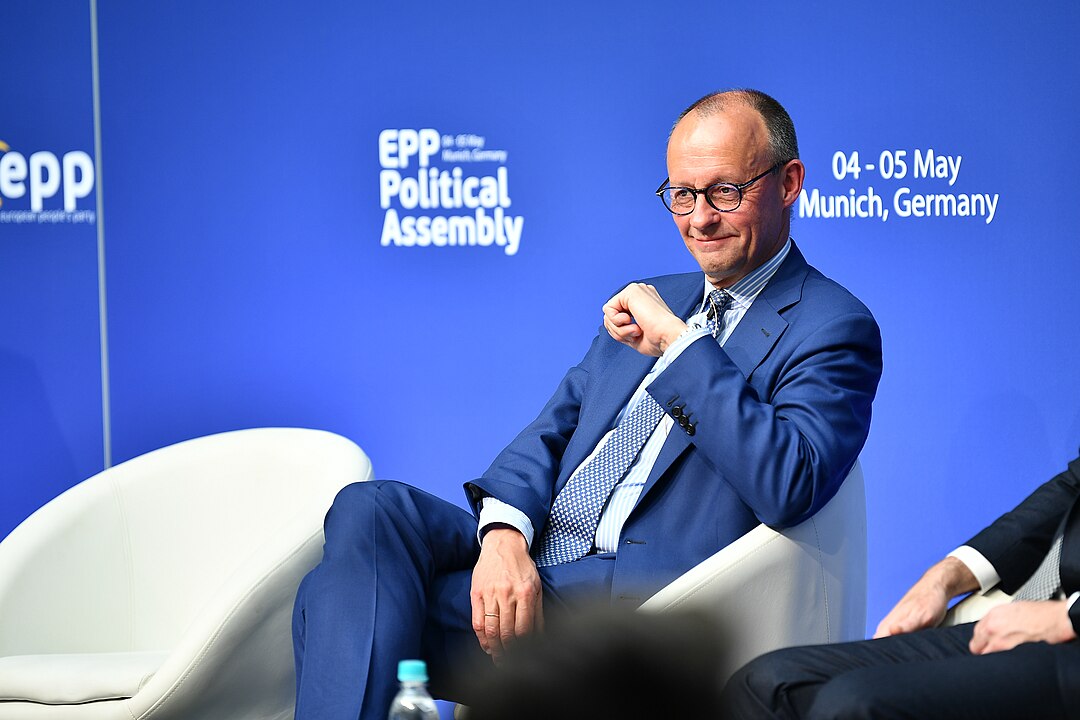
CDU leader Friedrich Merz at a meeting of the European People’s Party in 2023 (Source: EPP/Wikipedia Commons)
Germany’s defense policy is based on the principle of “never alone,” relying on allied cooperation with its closest allies. This is not just because of the famously dire state of the German armed forces, the Bundeswehr. The German constitution’s interpretation by the constitutional court in 1994 stipulates that the Bundeswehr can only operate within a collective security system, such as the United Nations, NATO, or the European Union.
Germany’s National Security Strategy, published in 2023 for the first time, lists France, the US, and Israel as partners. France is the only country with which Germany has a mutual defence agreement, the Treaty of Aachen, in addition to NATO’s article 5 and the EU’s article 42.7. The US guarantees Germany and Europe security through NATO and its nuclear umbrella. Germany’s reliance on US guidance has become more evident since Russia’s invasion of Ukraine in 2022. France and Germany, the EU’s largest countries, which saw themselves as the driving force behind European integration. France provided the security and the German economy financed the peace project of the integration. To put it more simply, the EU was built on French self-consciousness and German guilt.
Without a functioning Franco-German engine, hardly any progress can be made at the European level. This division of roles worked quite well, but the Russian-Ukrainian war has opened up tensions that had been previously obscured by the cordiality of the two European powers.
These tensions have decreased since the CDU leader has a strong anti-Russian and pro-Atlantic stance.
UK-EU Defense Pact: Is It Possible for Britain to Rejoin the EU?
The UK and the EU are drafting a defense and security agreement. The UK Prime Minister, Sir Keir Starmer, came up with the concept. In Trump 2.0, restoring the closest possible defense and security relationship between Britain and its continental neighbours should be an overwhelming priority for both sides. The European Commission has published a White Paper outlining key capability gaps and the idea of nuclear deterrence. Both the EU and UK have committed to increasing their own defense budget. The EU has decided to allow member states to incur more debt for security and defense spending, while the commission will raise €150bn against the common budget for collaborative equipment procurement by member states.
Meanwhile, the UK will raise its defense budget to 2,5 percent of GDP by 2027 and is working with France to assemble a “coalition of the willing” ready to deploy joint forces in support of any ceasefire deal in Ukraine. However, at the EU summit on 20 March, Hungary broke the consensus on the political statement in support of Ukraine and failed to agree on urgent new military aid to Ukraine. Delivering an EU-UK security and defense partnership at the summit would be an important symbol of Europe’s unity and determination and a key practical advance.
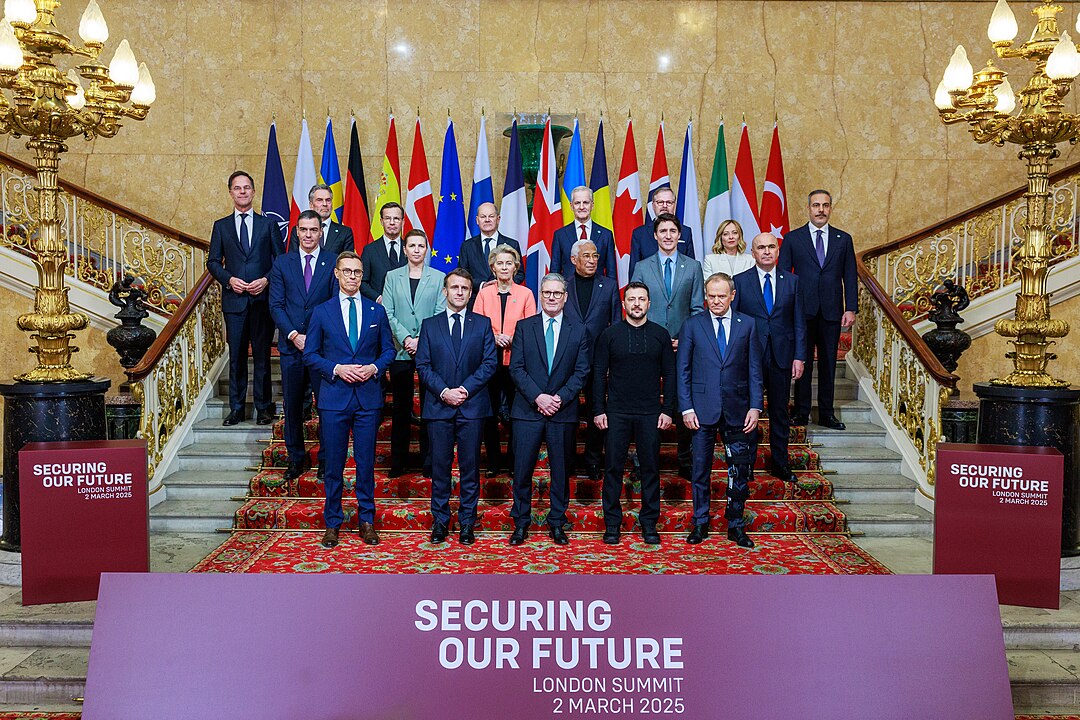
Participants at the 2 March 2025 London Summit on Ukraine (Source: Wikipedia Commons)
However, if Keir Starmer doesn’t make concessions on fishing rights, the alliance could fall apart, perpetuating cross-Channel mistrust. Last year, the UK imposed a ban on sand-eel fishing in its waters. The EU objected, and the issue is now in the hands of international arbiters. This sort of dispute is only too typical and similar to those that led to Brexit. There may be a lack of statesmanship if the two sides cannot agree on the crucial security considerations because of fishing rights.
European Defence Policy – A Reheated Gaullism?
If we are discussing statesmanship, Charles de Gaulle, the French military hero, president, and founder of the Fifth Republic of France, must be mentioned. Since Trump took office, he has threatened to annex Greenland, humiliated Ukraine to agree to a ceasefire, and stated that US allies must pay if they want US assistance. France, like Germany, could no longer afford to ignore these measures. In 2025, de Gaulle’s successor, Emmanuel Macron, said in his address to the French people that thanks to choices made by his predecessors, de Gaulle France has a special status with Europe’s most effective military and its own independent nuclear deterrent.
De Gaulle was the dominant figure in 20th-century French politics, and he was convinced that it was only a matter of time before America would become, as Merz says, indifferent to the fate of Europe. Now, America’s allies are calling France and asking two questions. One, how did you see this coming, and two, can you protect us from a rising Russia and China if America won’t? In 1940, French Prime Minister Paul Reynaud sought America’s help to stop Nazis planes approaching Paris, but they did not arrive. France surrendered, and General de Gaulle was the only one who urged resistance against the Nazi occupation. In an anxious Cold War world, where the Soviets replaced the Nazis, de Gaulle argued that France and Europe needed a strong army against the communists.
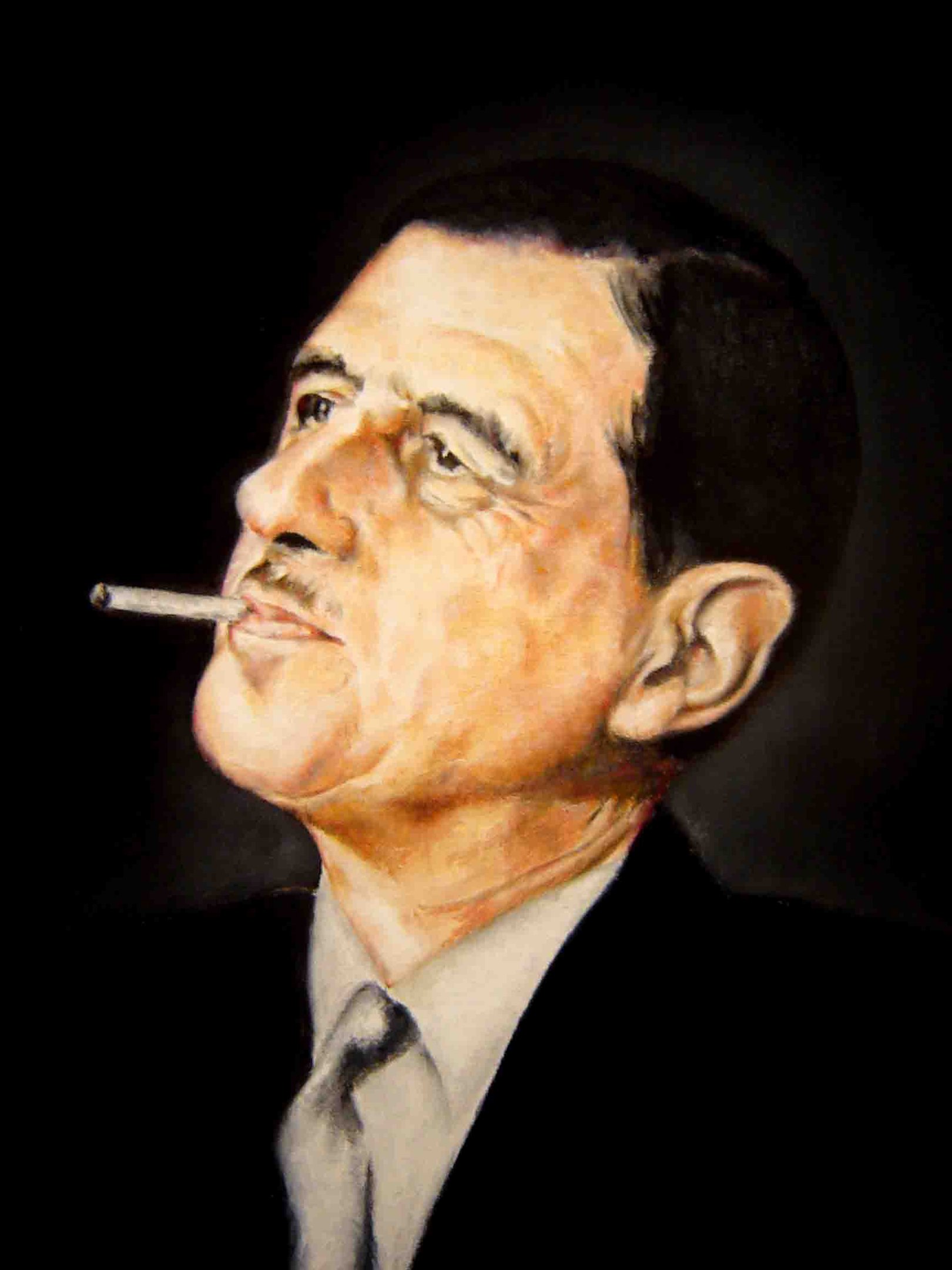
Charles de Gaulle. Portrait painted by Donald Sheridan. (Source: Wikipedia Commons)
Despite being a member of NATO, de Gaulle was skeptical about Washington’s response if Soviet troops marched up to the Rhine River. He believed that Kennedy would chicken out at the critical moment when the Soviets would advance towards Paris.
“He was indeed right to see strategic autonomy as the basis of national and European sovereignty. His worldview was based on facing reality, however painful it was, or however much he had to challenge the mainstream thinking of his time,” said Jean-Dominique Merchet, French journalist, in his interview at Valaszonline.hu. He added: “(De Gaulle) made the French economy dynamic; it was a good decision to develop nuclear power, and it was under him that France acquired the means of nuclear deterrence.”
When de Gaulle withdrew from NATO’s integrated military structure, he demanded that all foreign troops, including Americans, leave French soil. The US Secretary of State maliciously asked him if that included all the Americans buried in French military cemeteries after dying to liberate de Gaulle’s country. We have witnessed the same arrogance from Trump’s press secretary, Karoline Leavitt, who offered the following advice to the French politician who says America should give the Statue of Liberty back: “I would remind them it’s only because of the U.S.A. that the French are not speaking German right now.”
The media has been frothing over a France politician claiming they want the Statue of Liberty back.
Karoline Leavitt just set the record straight.
“I would remind them it’s only because of the U.S.A. that the French are not speaking German right now.” pic.twitter.com/jZhidtNA6p
— Media Lies (@MediasLies) March 17, 2025
In 2017, incoming French President Emmanuel Macron arranged de Gaulle’s memoir on de Gaulle’s desk for a photoshoot; with this act, he expressed his desire to be open to “allies, good friends, and partners, but not to be 100 percent dependent on them”.
Merchet thinks that Russia is not an existential threat from a French perspective. But he is right that Russia is a threat to us and to other European countries. “But we must also be aware that for Ukraine and for our Baltic and perhaps Polish allies, Russia is a real existential threat. As France has a fundamental interest in the security and stability of the whole continent, we have to consider different scenarios. There are degrees between total friendship and total war. The Russians are trying to destabilize our societies, hack our information systems, commit acts of sabotage against our critical infrastructures, and illegally fund extremist parties that support their goals.”

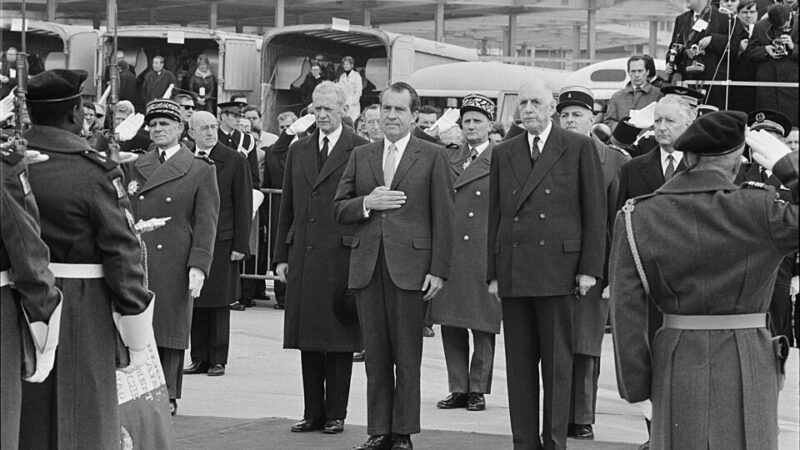
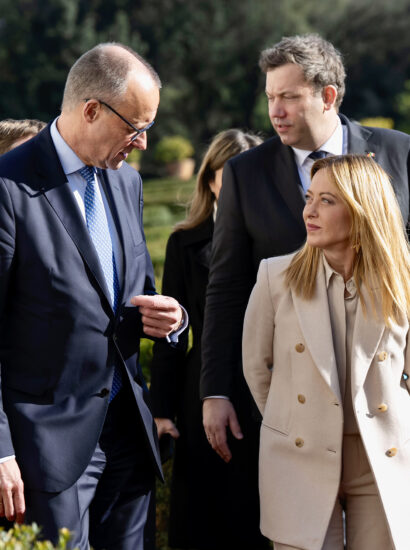
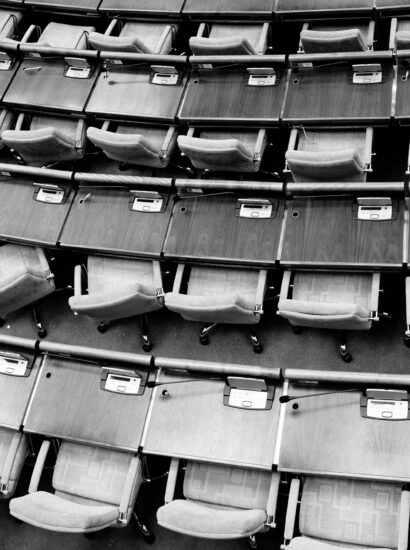
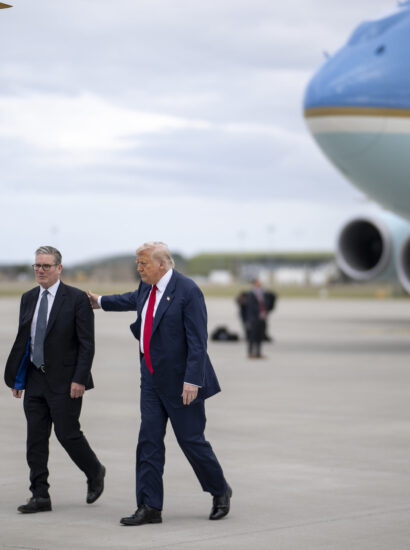
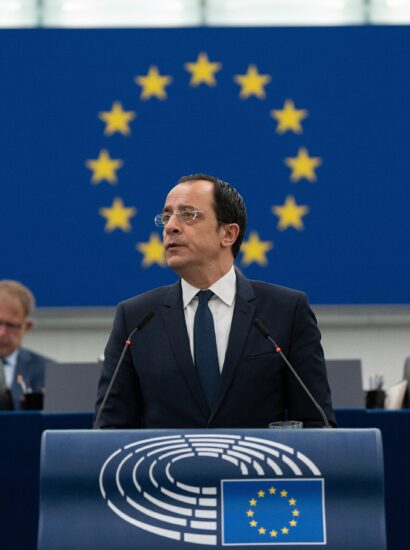


[…] countries aim to gain military autonomy, especially from their ally, the US, which has proven unreliable. They have therefore collectively increased defence equipment procurement spending, reaching over […]